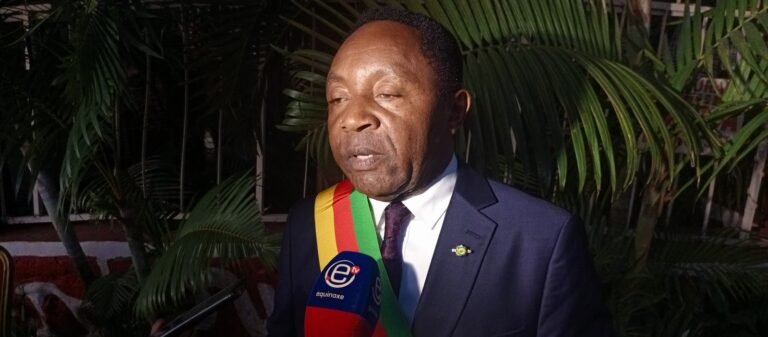Yaounde – In an impassioned address that reverberated through the halls of the Cameroon Senate, Senator Mbella Moki of Fako delivered a searing critique of the government’s failure to address the nation’s critical road infrastructure. Before a gathering of cabinet ministers, Moki laid bare the frustrations of millions of citizens, challenging the leadership’s long-standing pattern of empty promises and neglect.
The video of the senator’s address, (attached below) though undated, is a stark reminder that voices of accountability still echo in the corridors of power. Taking a tone that oscillated between teacherly candor and fiery advocacy, Moki’s words struck a chord with citizens weary of bad roads and unfulfilled commitments.
“Boys and girls, are you ready to hear my story?” he began, evoking the familiar scene of a classroom. But this was no ordinary story—it was a vivid account of despair borne of crumbling road infrastructure. Turning his gaze to the Minister of Public Works, he posed a damning challenge: “Do you understand the gravity of our situation?”
Moki’s speech painted a glaring paradox. “How is it possible,” he asked, “that our economic capital remains poorly linked to our national capital?” His rhetorical question underscored the dismal state of Cameroon’s roads, which not only impede commerce but also isolate communities and tarnish the country’s international image.
With an urgency that reflected the cries of his constituents, Moki recounted the devastating human cost of this neglect. “Have you ever lost a relation because of bad roads?” he asked, his voice heavy with emotion. The question hung in the air, a poignant reminder of the lives lost in daily motor accidents due to unsafe roads.

Drawing on President Paul Biya’s own words during a visit to Buea—“The crown cannot be happy when the cottage is not happy”—Moki exposed the stark disconnect between the government’s promises and the realities faced by ordinary people.
The senator painted a grim picture of the Southwest Region, where six divisions remain isolated from their regional headquarters due to impassable roads. Frustration has morphed into resentment, he noted, pushing some to adopt extremist views as a desperate cry for attention.
Citing Lebialem, he posited that “Field Marshal” didn’t pick up arms for nothing – Lebialem has no roads, he said. Ekondotiti-Kumba road, Moki described as neglected to the extent even motorbikes struggle to traverse its paths. “Let us be frank,” he implored the Ministers. “We cannot pretend everything is fine.”
With elections looming, Moki’s words carried a warning: “What do you want from us?” He made it clear that continued neglect would only deepen the chasm between the government and the citizens.
Moki’s critique extended beyond roads to unfulfilled development projects, including a bitumen plant and cement factory promised in Limbe, the long-awaited Limbe seaport, and the Tiko airport. These projects, he argued, symbolized Cameroon’s untapped potential and the government’s chronic inability to deliver. “Is this another deception?” he asked, his voice quavering with disappointment.
As the echoes of Moki’s words fade, they leave behind an uncomfortable truth: the status quo is unsustainable. His speech, both a lamentation and a challenge, underscores the urgency of addressing the structural deficiencies that have long plagued Cameroon.
“How long must we endure this suffering?” he demanded. For millions of Cameroonians, the answer is clear: not a moment longer.

